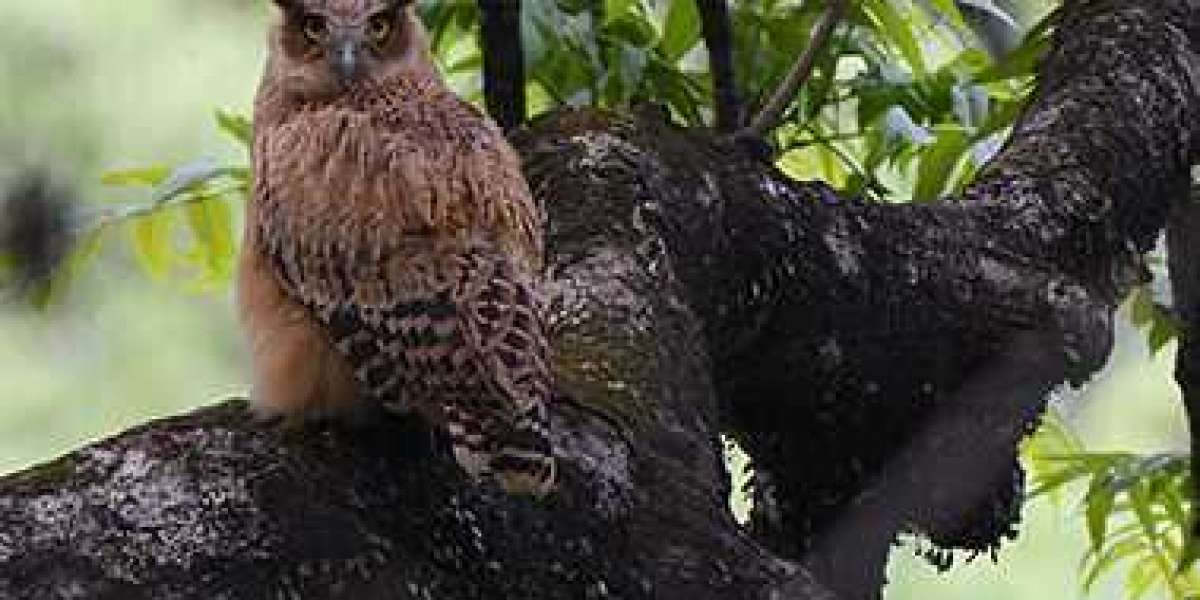Bhutan, often referred to as the "Land of the Thunder Dragon," is a small Himalayan kingdom nestled between India and China. It is renowned for its stunning landscapes, rich cultural heritage, and pristine environment. But what truly makes Bhutan stand out for wildlife enthusiasts is its remarkable diversity of elusive mammals. In this guide, we will embark on a virtual journey through Bhutan's dense forests and rugged mountains to discover some of the country's most elusive and fascinating mammalian residents.
The Kingdom of Bhutan: A Biodiversity Hotspot
Bhutan's unique geography, characterized by soaring mountain ranges and lush valleys, provides a wide range of ecosystems and habitats. This diversity has given rise to a rich array of wildlife, making Bhutan one of the world's biodiversity hotspots. The country is home to an impressive number of mammal species, many of which are rarely seen elsewhere.
1. Snow Leopard (Panthera uncia)
One of Bhutan's most iconic but elusive mammals is the snow leopard. This majestic cat, with its thick fur and distinctive spotted coat, roams the high-altitude regions of the Himalayas. Bhutan's rugged terrain and remote landscapes provide a sanctuary for these elusive predators. However, spotting a snow leopard in the wild is a rare and thrilling experience that requires patience, persistence, and a bit of luck.
To increase your chances of spotting a snow leopard in Bhutan, consider visiting the Jigme Dorji National Park or Wangchuck Centennial Park. These protected areas offer pristine habitats for snow leopards and are actively involved in conservation efforts to protect this endangered species. Local guides and wildlife experts can also assist you in your quest to catch a glimpse of these elusive big cats.
2. Bengal Tiger (Panthera tigris tigris)
The Bengal tiger, an iconic symbol of power and grace, also calls Bhutan home. While they are found in other parts of South Asia, Bhutan offers a unique opportunity to spot tigers in a relatively unspoiled environment. Conservation efforts in the country have led to an increase in tiger populations, but they remain elusive and primarily nocturnal.
If you're determined to see a Bengal tiger in Bhutan, consider exploring the Royal Manas National Park or the Phibsoo Wildlife Sanctuary. These protected areas provide suitable habitats for these apex predators, and with the guidance of experienced wildlife trackers and rangers, you might be fortunate enough to encounter one of these magnificent cats during a nighttime safari.
3. Red Panda (Ailurus fulgens)
The red panda, often described as a "living fossil," is a small, tree-dwelling mammal known for its adorable appearance and striking coloration. Bhutan is home to a thriving population of red pandas, which are primarily found in the country's dense temperate forests. Spotting a red panda in Bhutan is a challenging but rewarding experience, as these elusive creatures are known for their solitary and elusive nature.
To increase your chances of glimpsing a red panda, explore the Phrumsengla National Park or Bumdeling Wildlife Sanctuary. These regions offer the ideal habitat for these bamboo-loving creatures. Local guides are invaluable in locating red pandas, as they possess a deep understanding of their behavior and preferred habitats.
4. Takin (Budorcas taxicolor)
The takin, Bhutan's national animal, is a remarkable creature that seems to be a fusion of various animals. With its unique appearance, comprising a robust body, short legs, and a goat-like head, spotting a takin in the wild is a delightful experience for wildlife enthusiasts. Bhutan's temperate forests and alpine meadows provide the ideal environment for these fascinating mammals.
To observe takins in their natural habitat, consider visiting the Jigme Singye Wangchuck National Park or the Thrumshingla National Park. These parks are known for their thriving takin populations and are excellent places to witness these odd but charming animals.
5. Himalayan Black Bear (Ursus thibetanus)
The Himalayan black bear, often referred to as the "moon bear" due to its crescent-shaped white chest patch, is another enigmatic mammal that roams the mountains and forests of Bhutan. These bears are primarily found in higher elevations, making them challenging to spot. However, they are occasionally seen foraging for food in the lower valleys during the warmer months.
To increase your chances of encountering a Himalayan black bear, explore the Phobjikha Valley or the Bumthang Valley. These regions are known for their lush vegetation and are potential hotspots for black bear sightings. As with any wildlife observation, exercising caution and maintaining a respectful distance is crucial to ensure both your safety and the well-being of the bears.
6. Golden Langur (Trachypithecus geei)
Bhutan's forests are not only home to captivating carnivores but also to an array of primates, including the golden langur. This endangered monkey species is characterized by its striking golden fur and playful nature. Observing these langurs in the wild is a memorable experience for any nature lover.
To spot golden langurs, consider exploring the Phibsoo Wildlife Sanctuary or the Manas National Park. These protected areas are known for their populations of these unique primates. Golden langurs are most active during the day, making daytime treks and guided tours your best chance to witness their antics in the treetops.
7. Himalayan Musk Deer (Moschus leucogaster)
The Himalayan musk deer is an elusive and solitary creature known for its distinct appearance, including long canine teeth (tusks) and a gland that produces musk. This glandular secretion has been highly prized for its use in perfumes and traditional medicine, leading to significant conservation concerns for these small deer.
Exploring the remote and pristine areas of Bhutan's northern regions, such as the Jigme Dorji National Park or the Lunana Valley, may increase your chances of encountering a Himalayan musk deer. However, due to their solitary and nocturnal behavior, sighting one of these deer is a rare and precious experience.
8. Serow (Capricornis sumatraensis)
Serows are another intriguing addition to Bhutan's diverse mammalian fauna. These agile, goat-like mammals are often found in rugged, forested areas. Bhutan's mountainous terrain provides an ideal habitat for serows, which are known for their solitary nature and elusive behavior.
To spot a serow, venture into the Haa Valley or the Sakteng Wildlife Sanctuary. These regions are known to host populations of these sure-footed herbivores. As with any wildlife observation in Bhutan, enlisting the assistance of experienced local guides is highly recommended.
9. Himalayan Goral (Naemorhedus goral)
The Himalayan goral, a small and agile ungulate, is yet another captivating mammal that inhabits Bhutan's mountains. These creatures are often found in steep, rocky terrain and are known for their keen sense of alertness, making them challenging to approach.
To catch a glimpse of Himalayan gorals, explore the Phrumsengla National Park or the Jomolhari Trekking route. These areas offer suitable habitats for these mountain-dwelling ungulates.
also see:
bird watching, eco travels, eco -friendly tourism, nature tourism places, birding tour
cultural tours, eco travels, thunder dragon, adventurous, spiritual
birds of Bhutan, eco travels, bird photography, wildlife tours, Buddhism tour
Eco travels , bird photography, Trashigang festival, cultural heritage, Thrumshingla national park
cultural holiday, Eco travels , bird watching, mammals, flowers
birding, animal watching, nature walk, Eco travels , extinct species
birding tour, Eco travels, cultural tour , best travel agency, Bhutan tour
spring bird, Eco travels, wildlife tour, ecotours, Himalayan Monal
historical sites, Eco Travels , Thimphu, Paro Taktsang, trip to Bhutan








